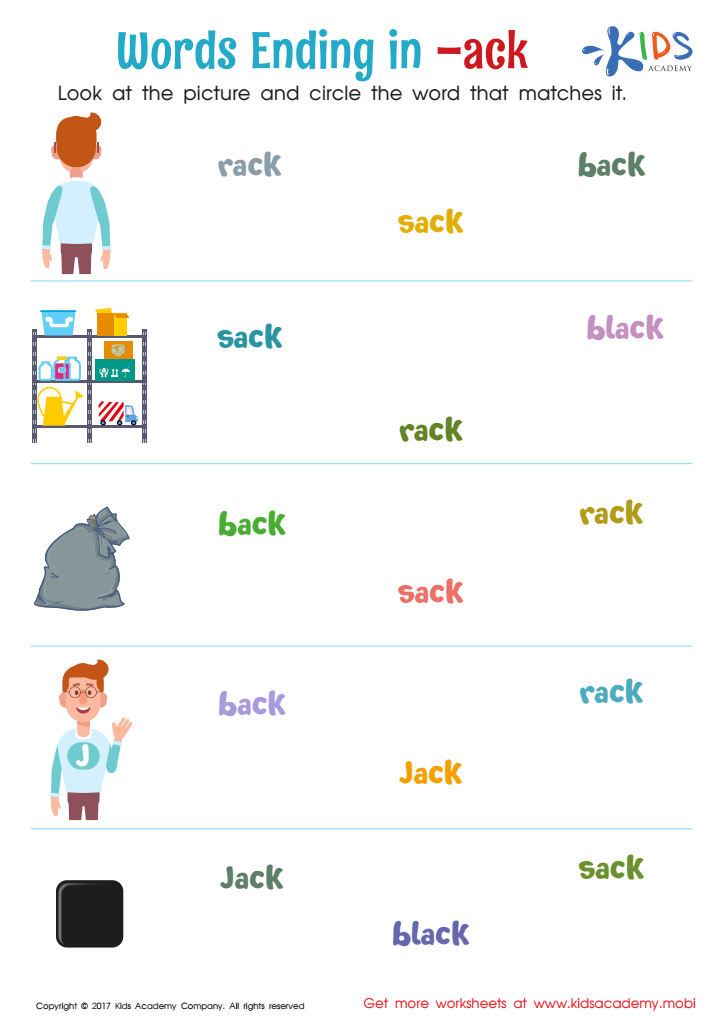Spelling practice Writing Worksheets for Ages 6-8 - Page 2
50 filtered results
-
From - To
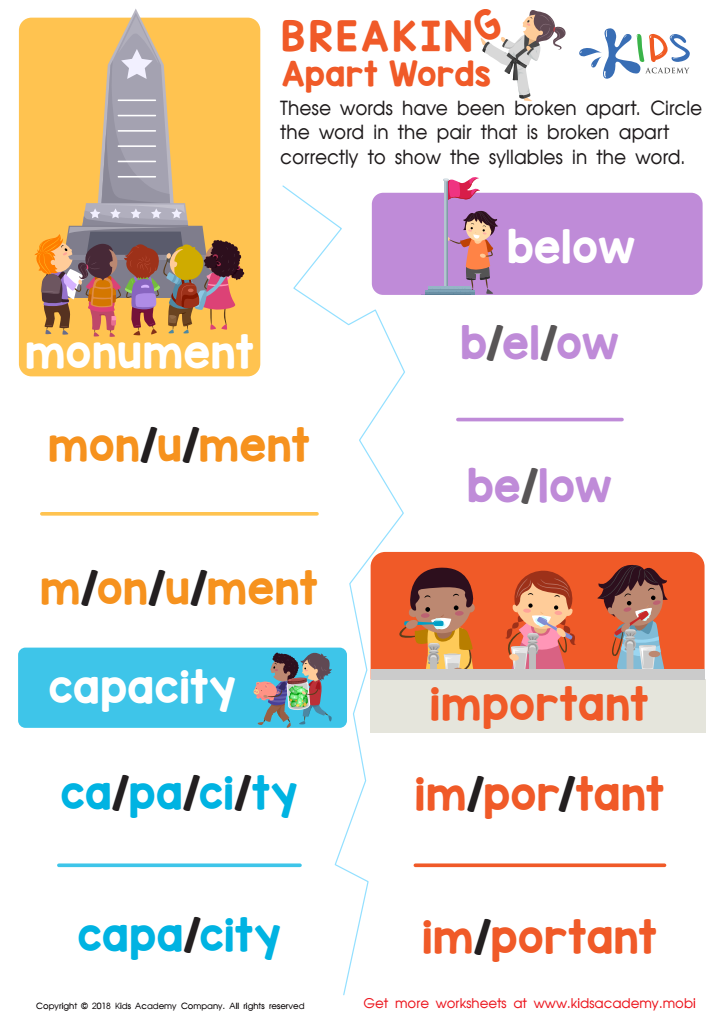

Breaking Apart Words Worksheet
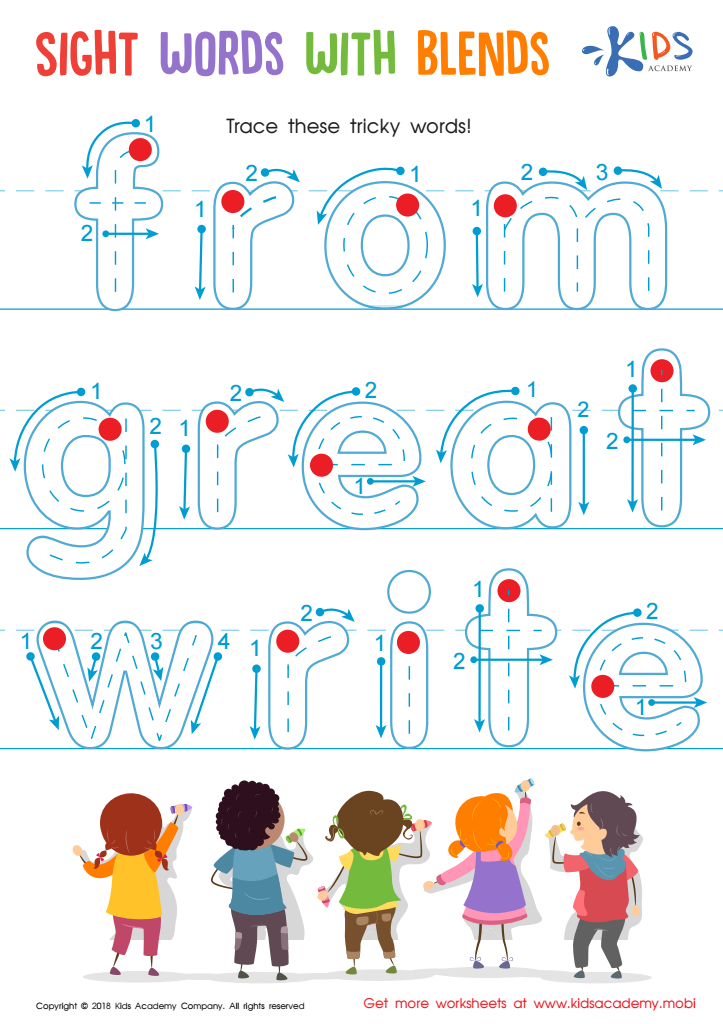

Sight Words with Blends Worksheet
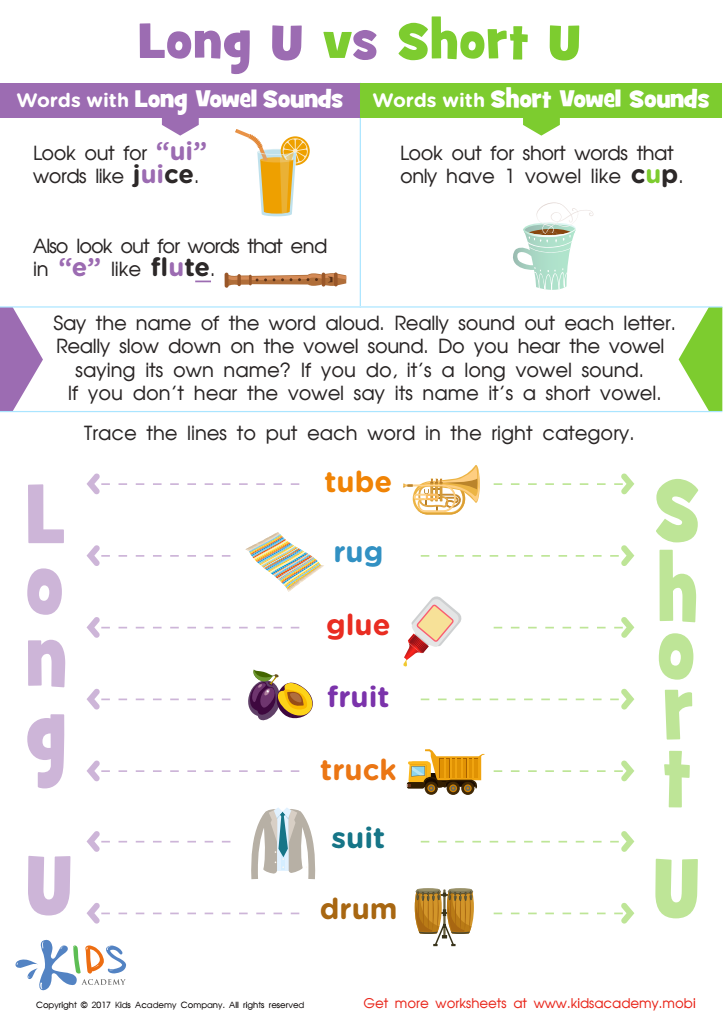

Long and Short Vowel U Spelling Worksheet
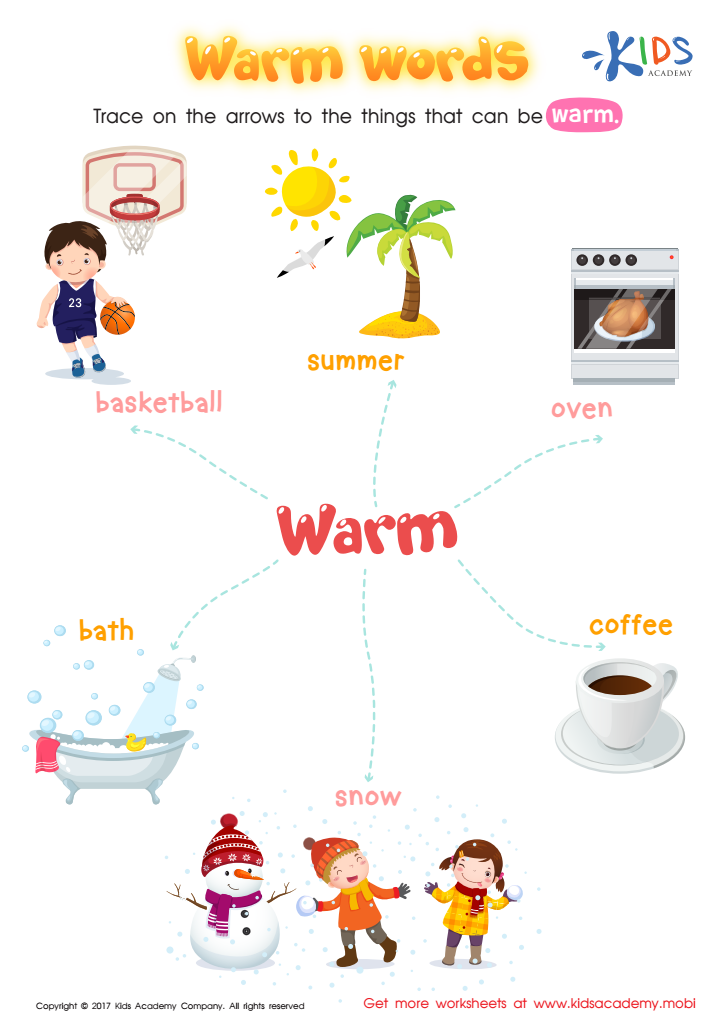

Warm Words Worksheet
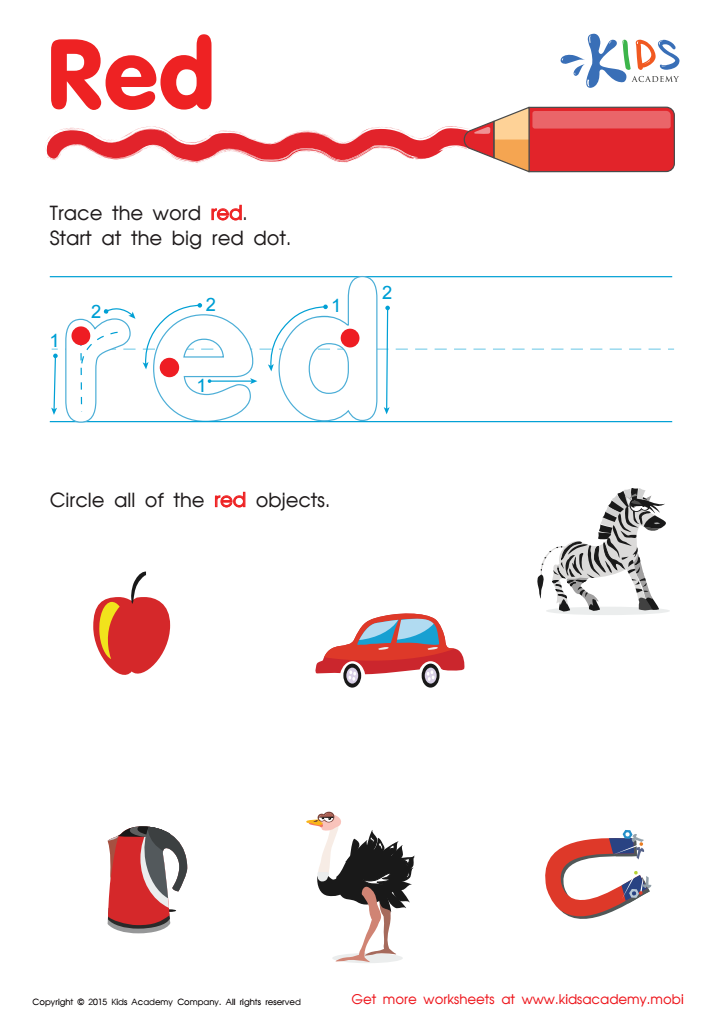

Red Tracing Color Words Printable
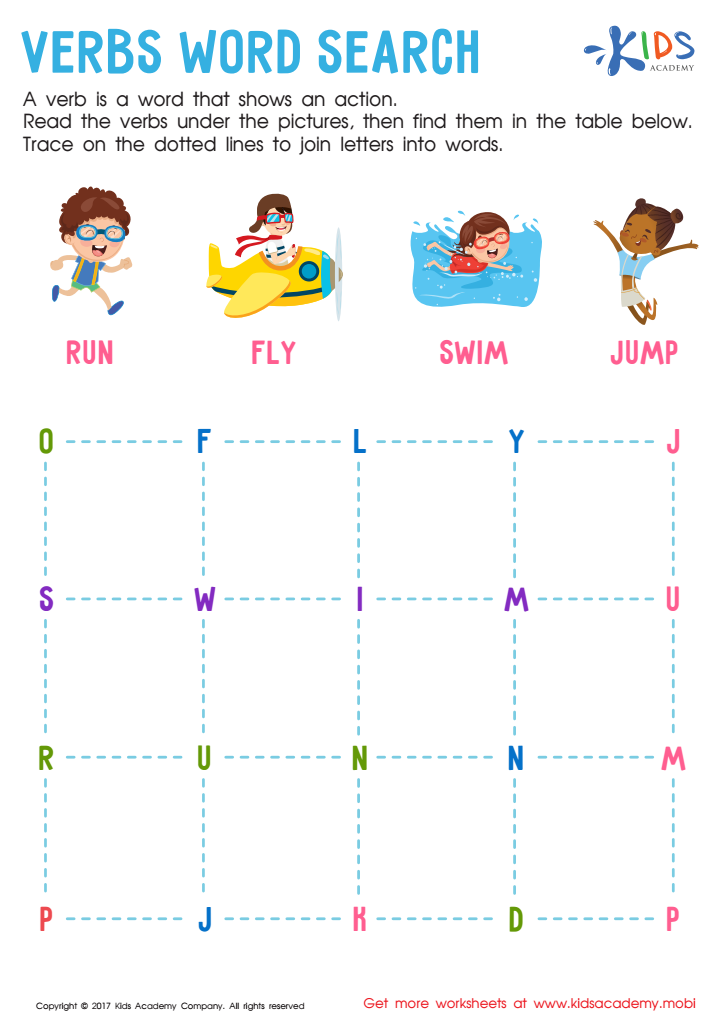

Verbs Word Search Worksheet
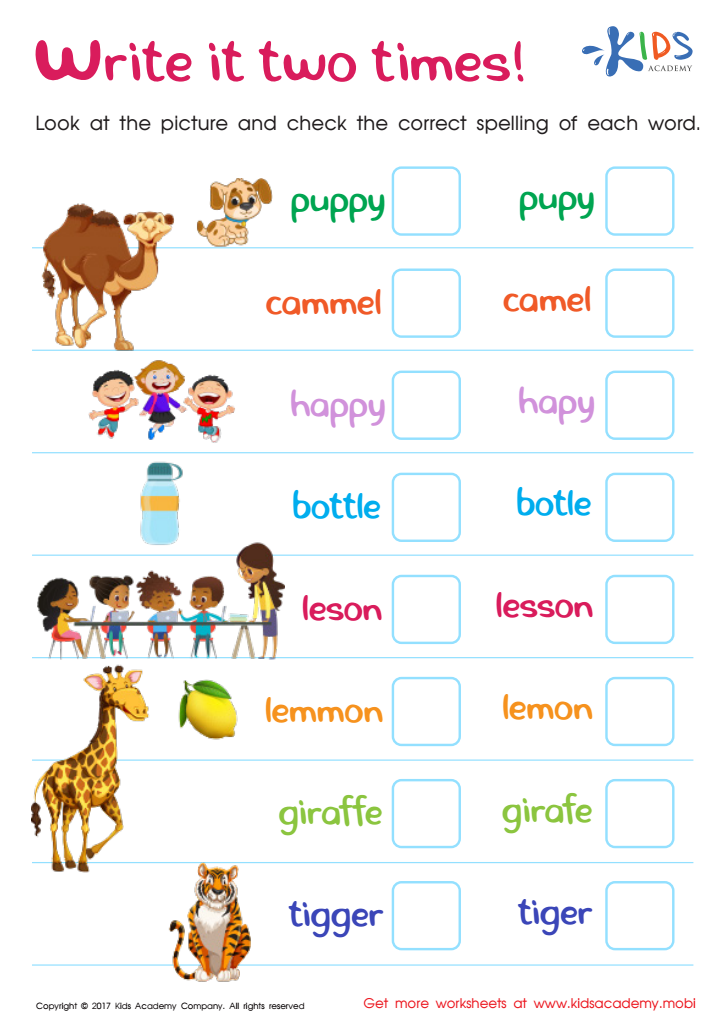

Spelling Practice Worksheet
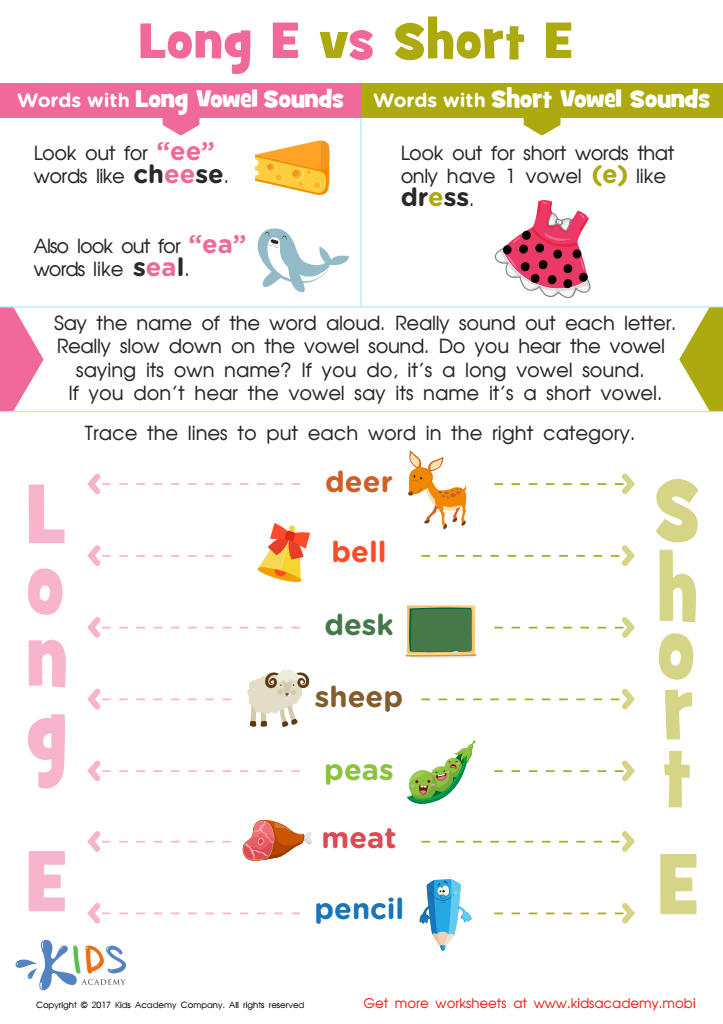

Long and Short Vowel E Spelling Worksheet
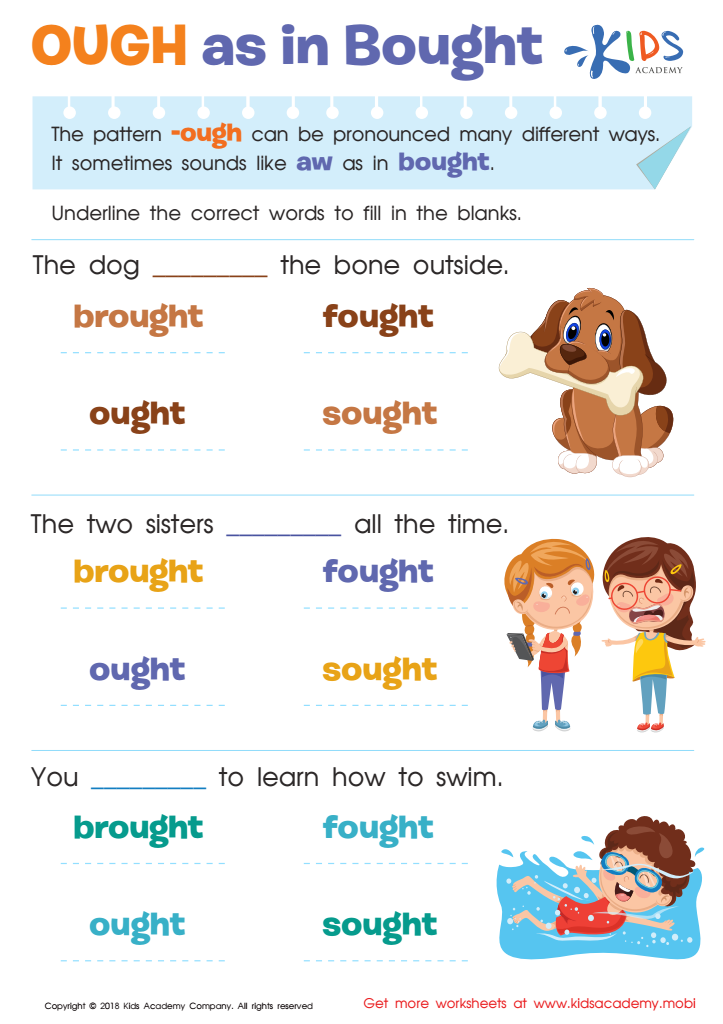

OUGH as in Bought Worksheet
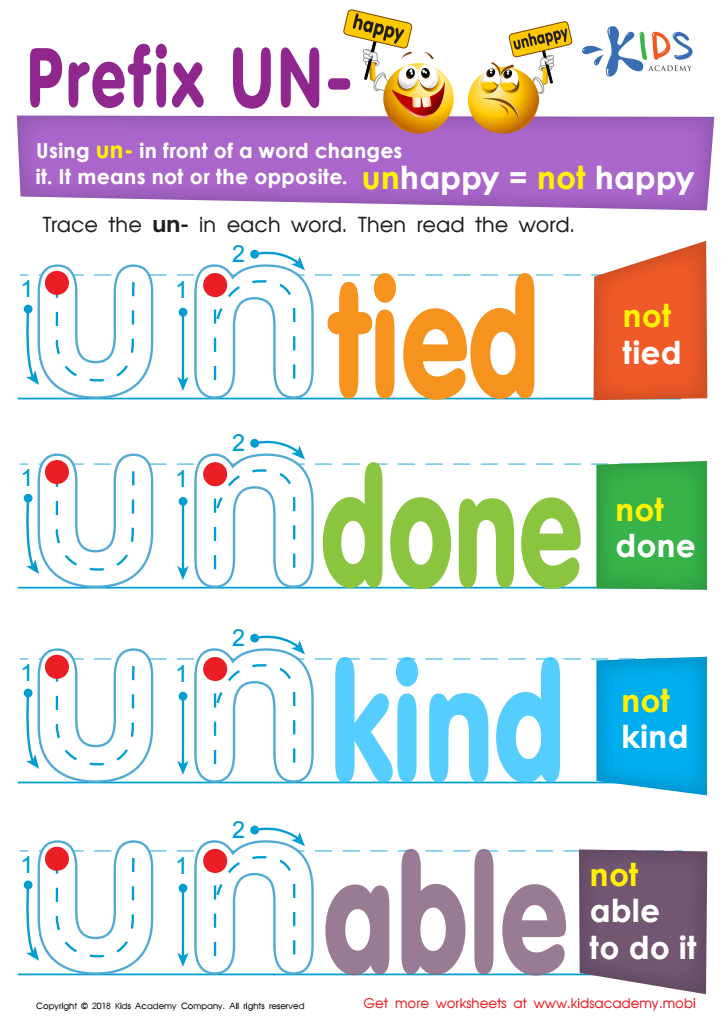

Prefix Un- Worksheet
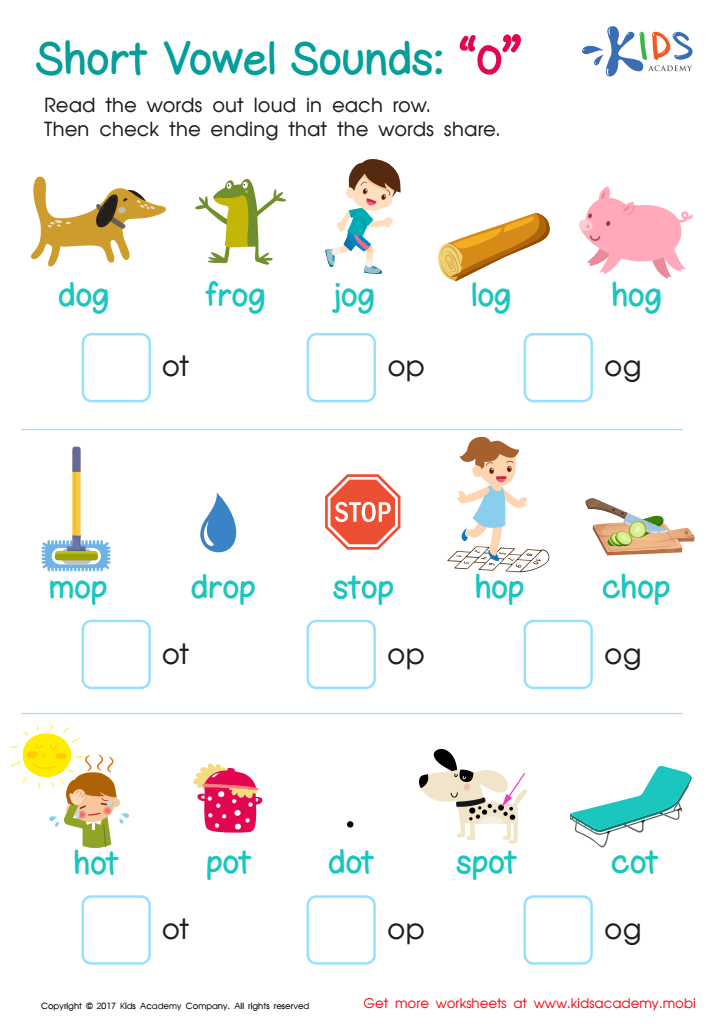

Short vowel Sounds "o" Spelling Worksheet
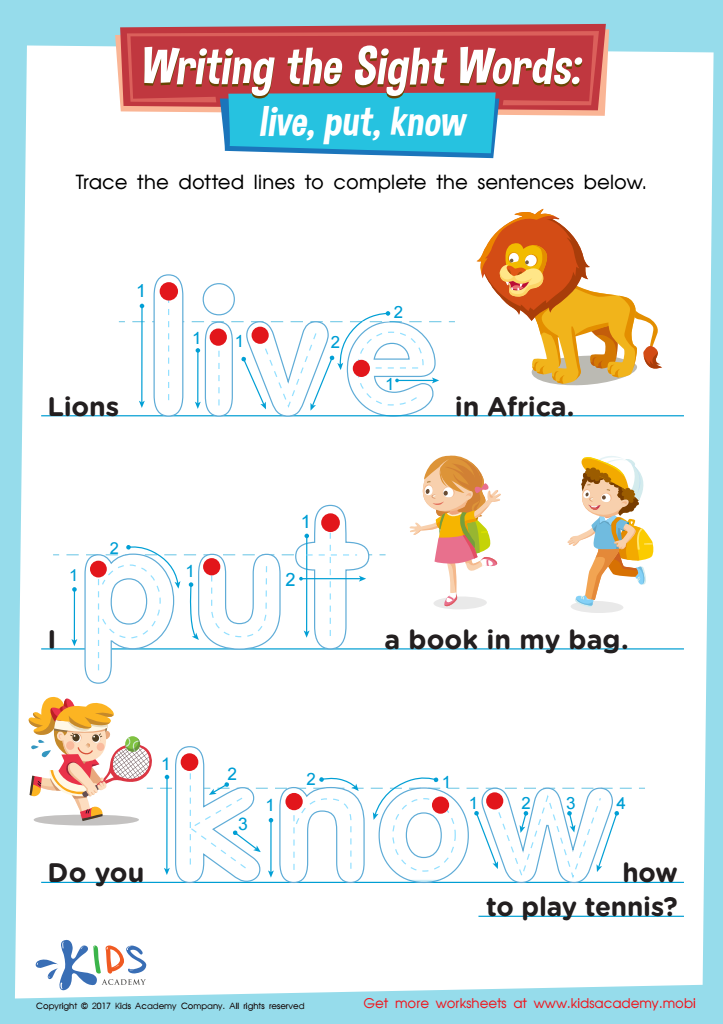

Live, Put, Know Printable Sight Words Worksheet
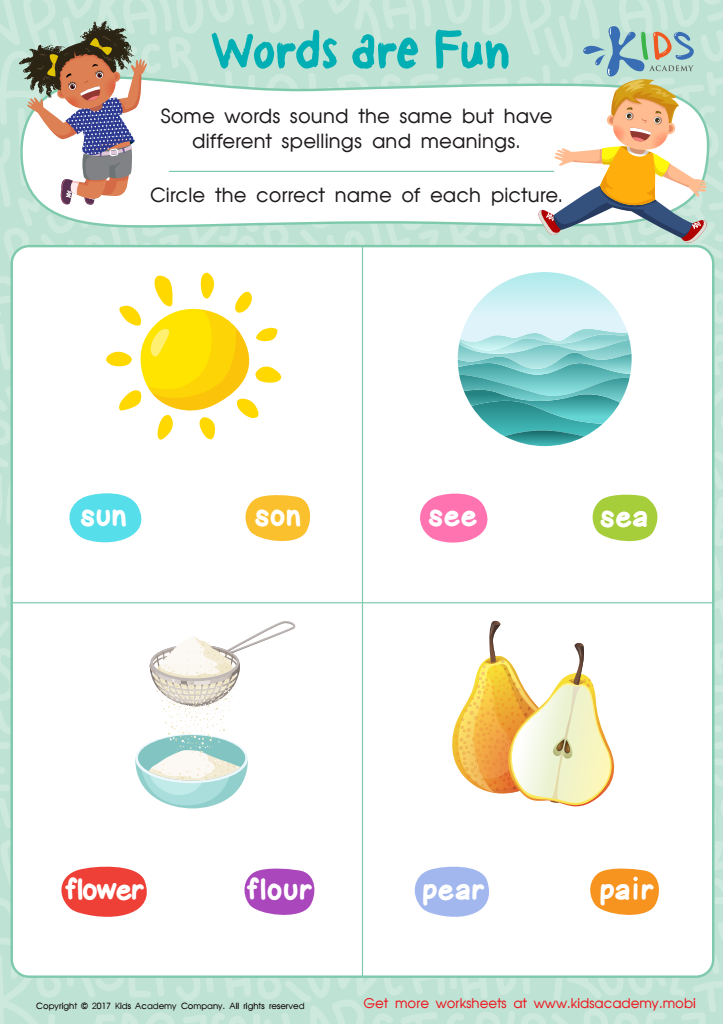

Words Are Fun Worksheet
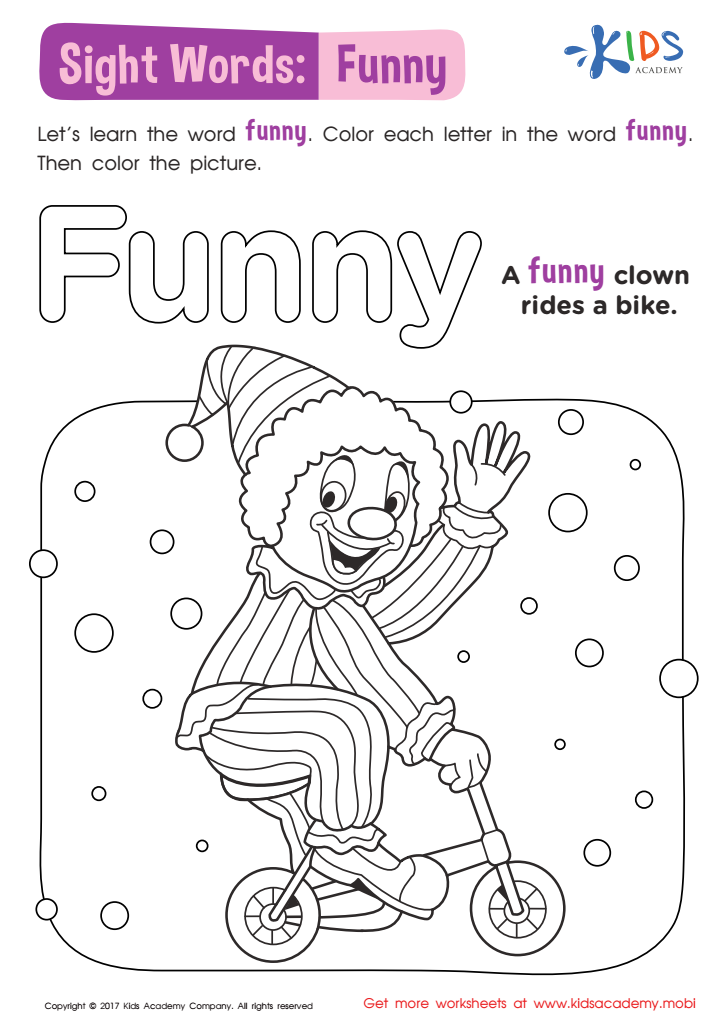

Funny Worksheet Sight Words Worksheet
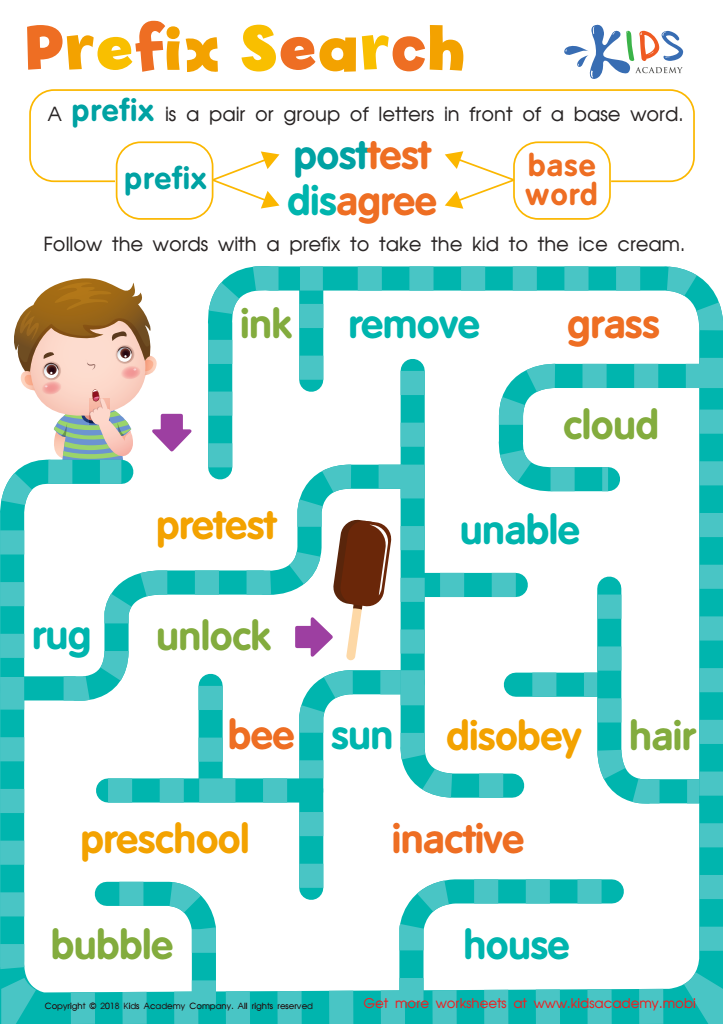

Reading: Prefix Search Worksheet
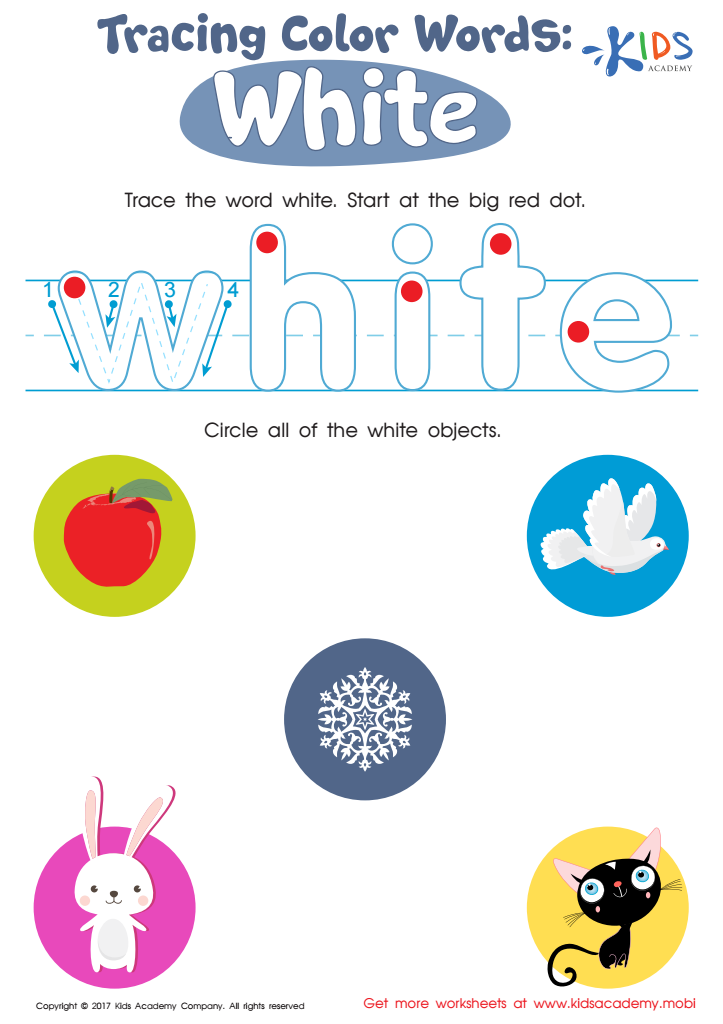

White Tracing Color Words Worksheet
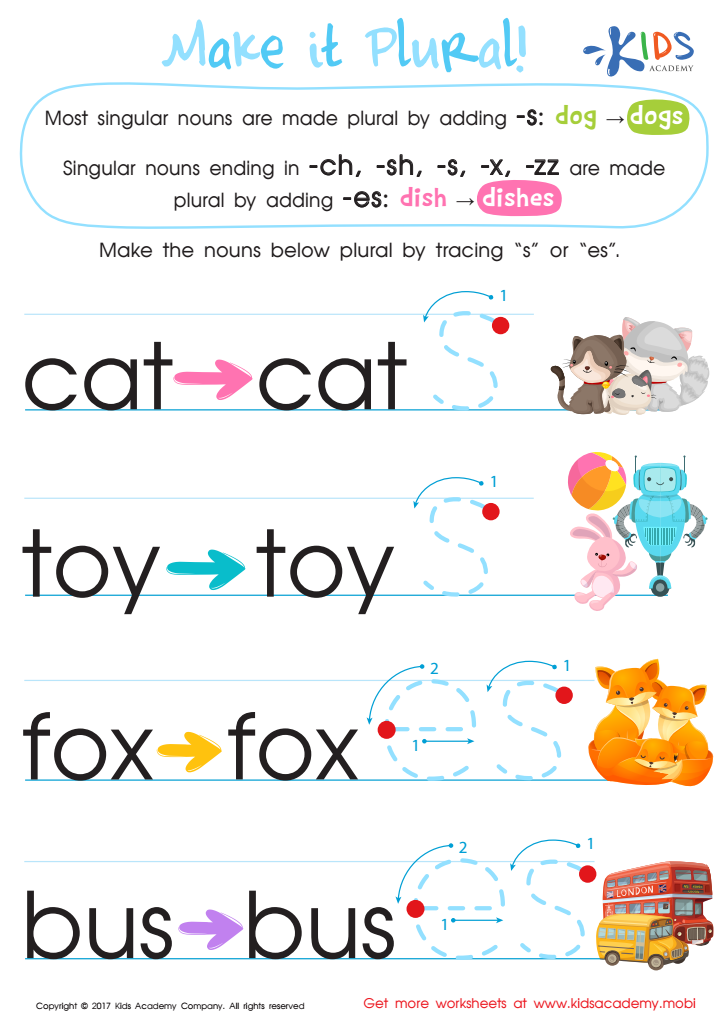

Make it Plural Worksheet
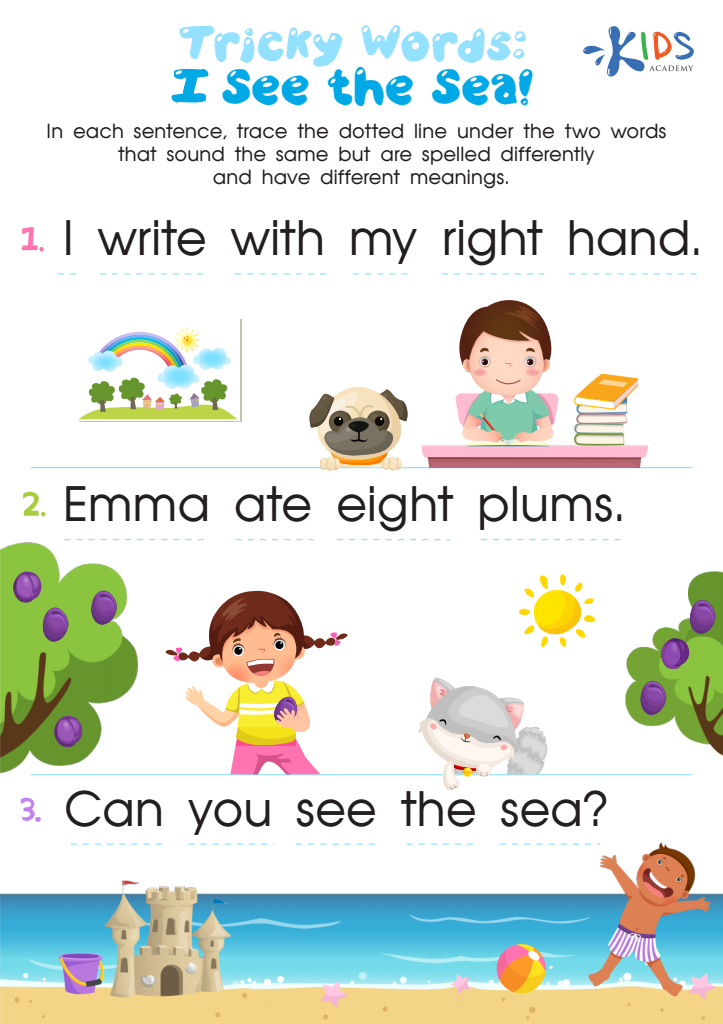

Tricky Words Worksheet
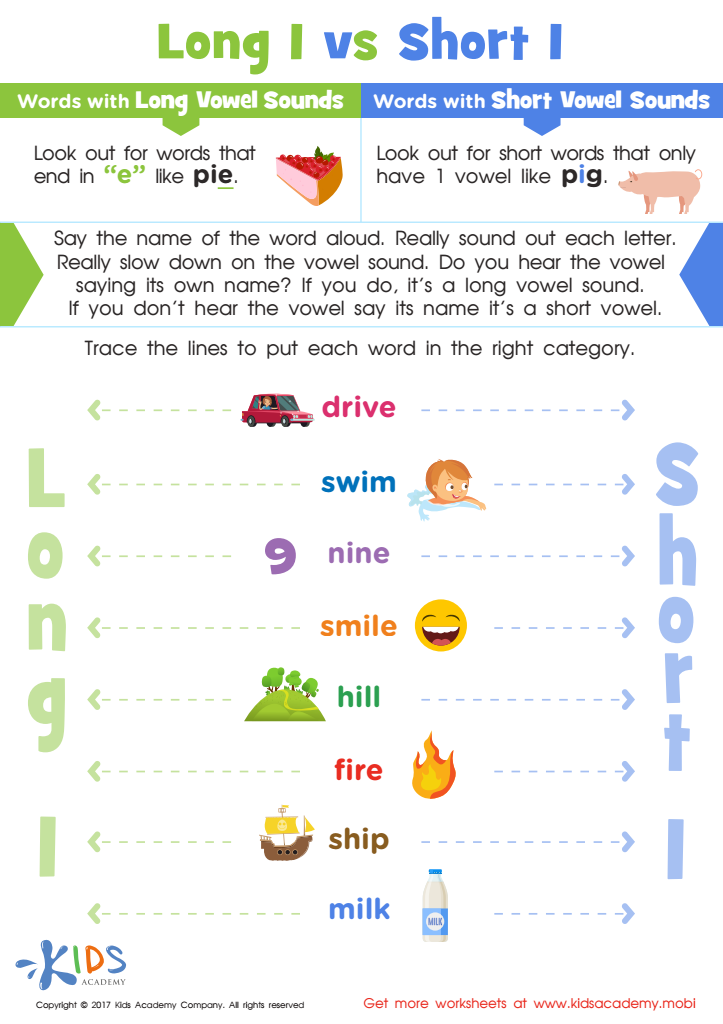

Long and Short Vowel I Spelling Worksheet
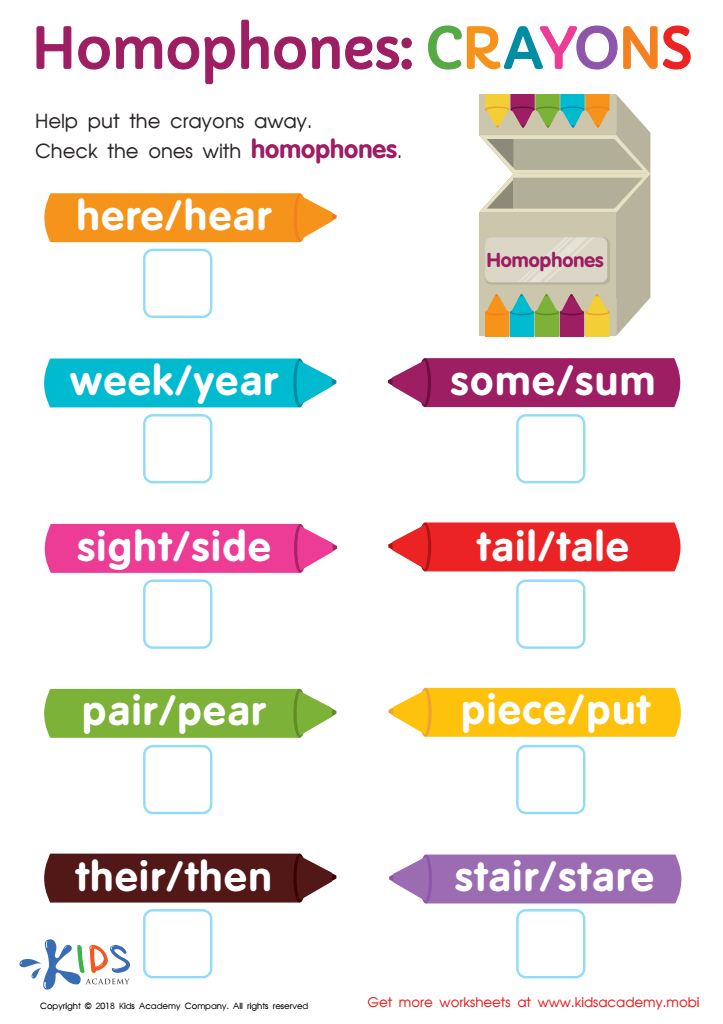

Homophones: Crayons Worksheet


Phonics and Word Recognition: Assessment 1 Worksheet
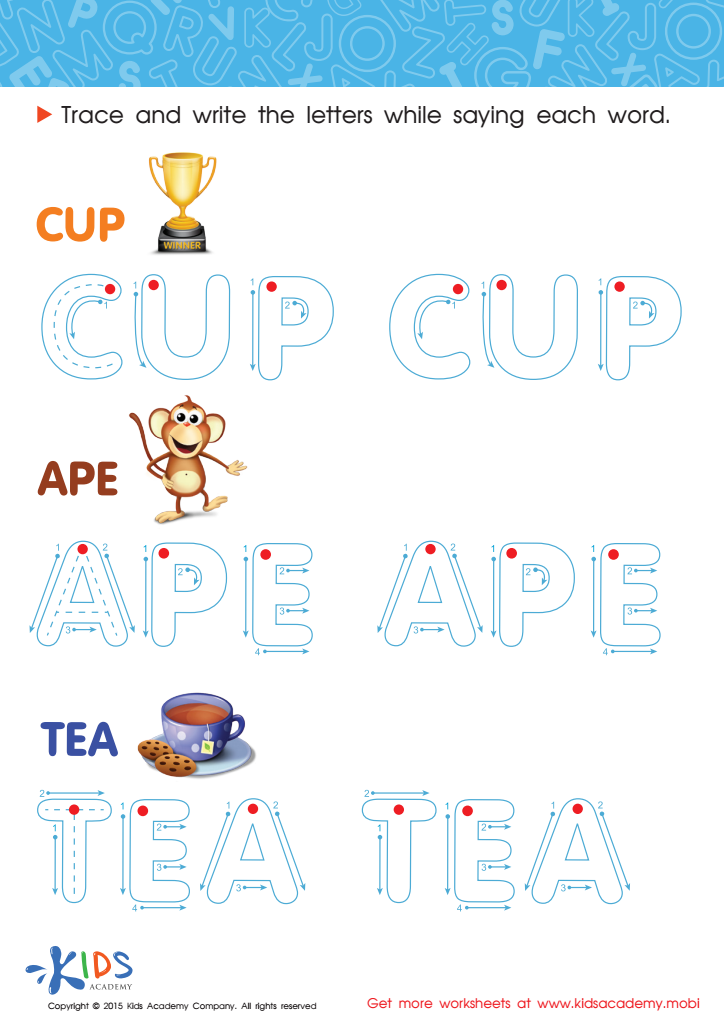

A Cup, an Ape and Tea Spelling Worksheet
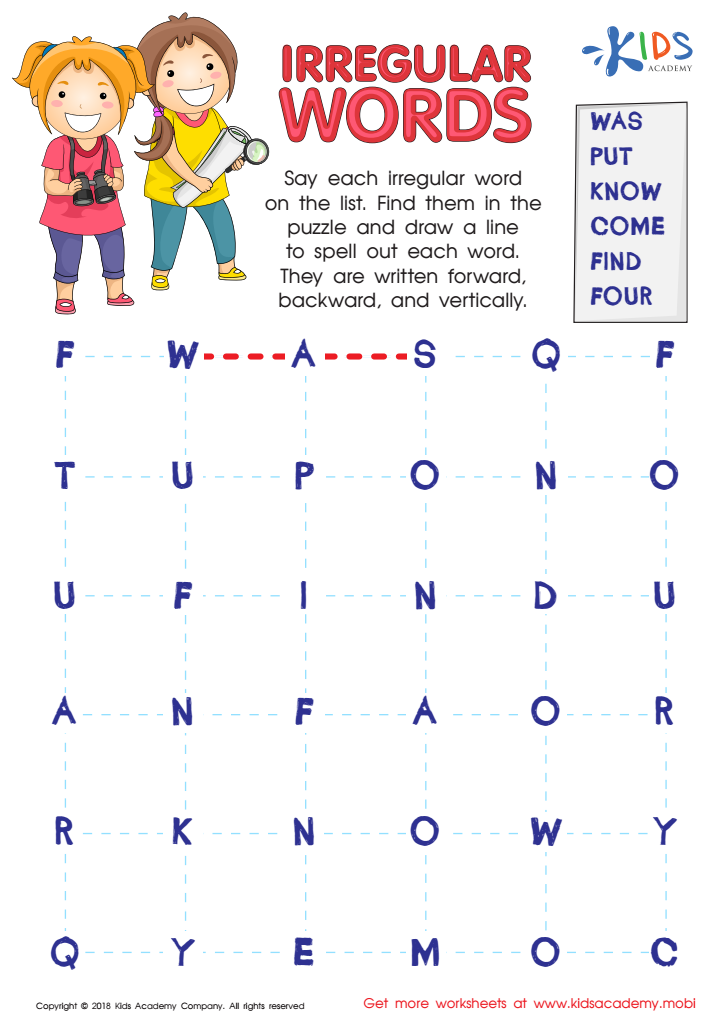

Irregular Words Worksheet
Spelling practice is crucial for children aged 6-8 as it lays a fundamental stone for their overall literacy development. During these formative years, children transition from recognizing letters to constructing words and sentences, a skill pivotal for advanced reading and writing proficiency. Engaging in regular spelling exercises reinforces their understanding of the phonetic structure of language, aiding memory retention and cognitive development.
Moreover, spelling practice enhances vocabulary acquisition, enabling children to better express their thoughts and emotions. This competency boosts their self-confidence and encourages more meaningful participation in the classroom. Correct spelling is also intrinsically linked to reading comprehension; a solid grasp of word formations helps children decode text efficiently, improving their ability to understand and enjoy what they read.
In the digital age where autocorrect and spell-check features are prevalent, developing strong spelling skills ensures that foundational knowledge remains intact. For teachers, structured spelling sessions provide a diagnostic tool to identify specific areas where a child might need extra support. For parents, involvement in spelling activities presents an opportunity to engage in their child's education, fostering a supportive learning environment that extends beyond the classroom walls. Comprehensive spelling practice offers enduring benefits, making it a cornerstone of early childhood education.

 Assign to My Students
Assign to My Students
